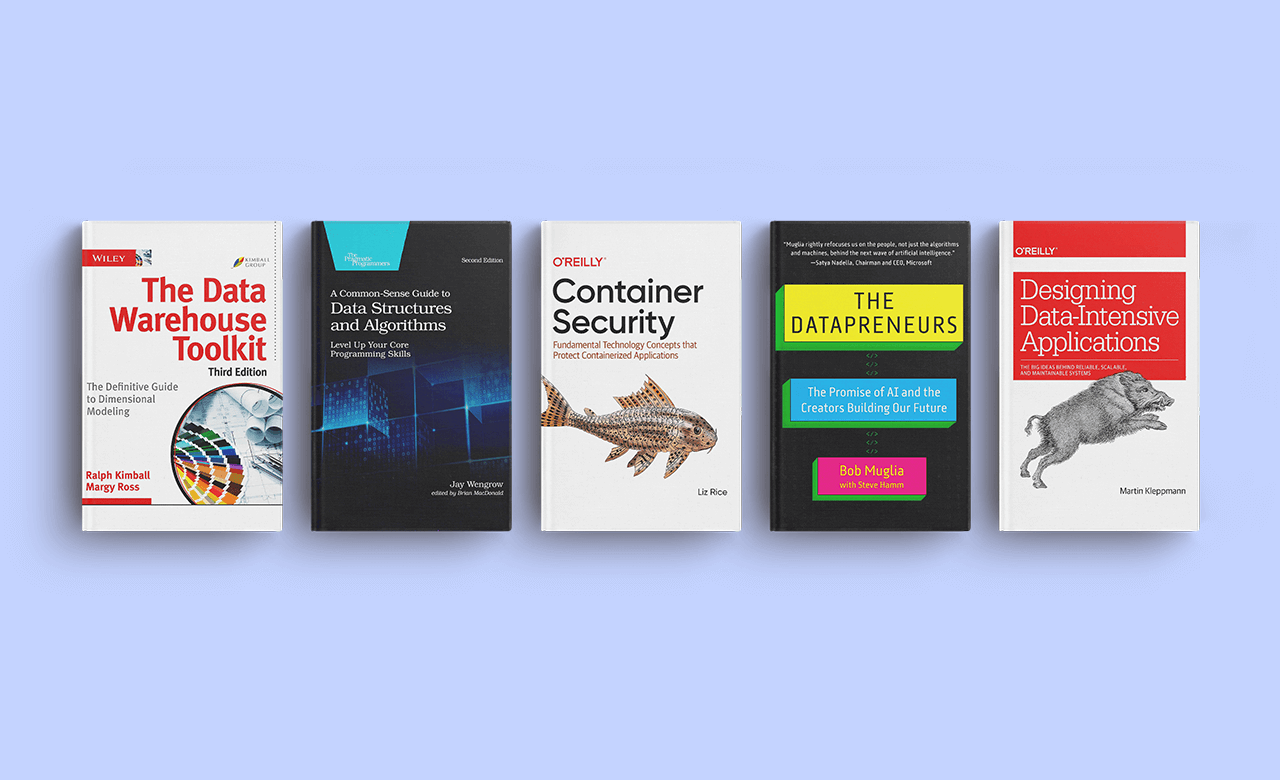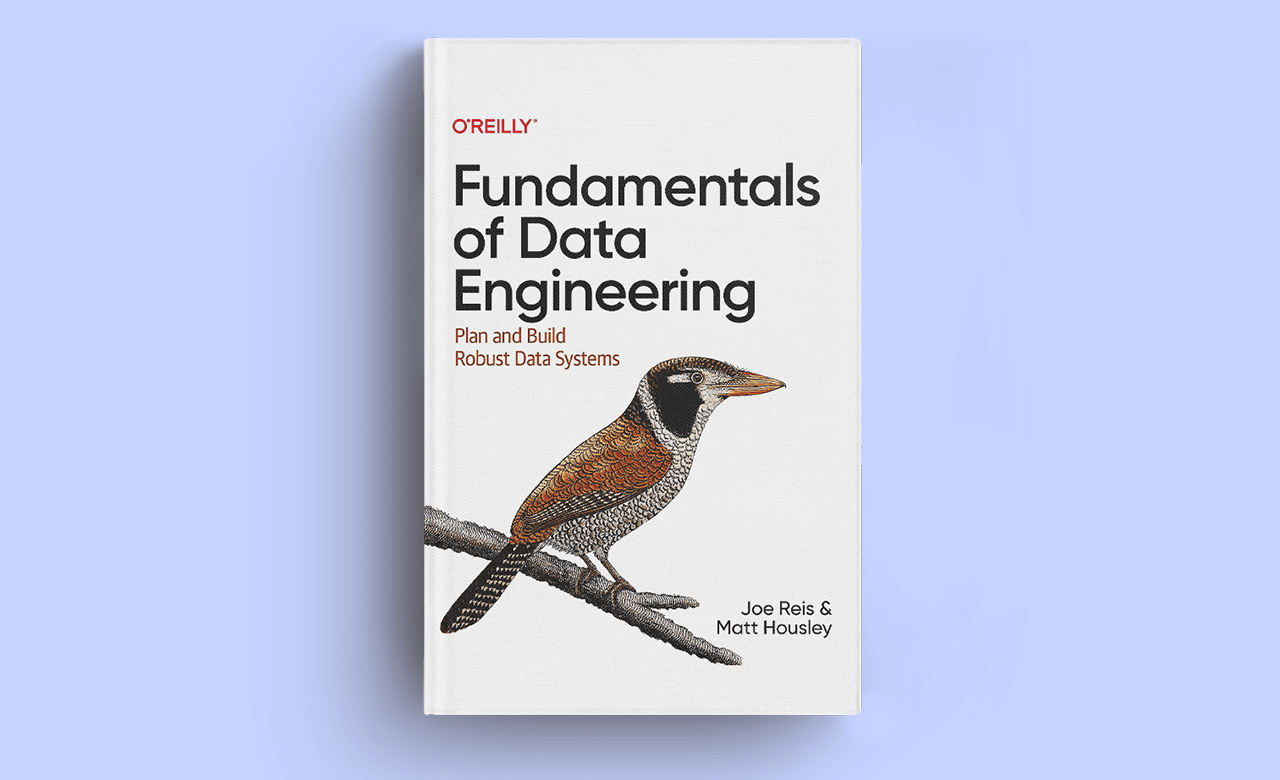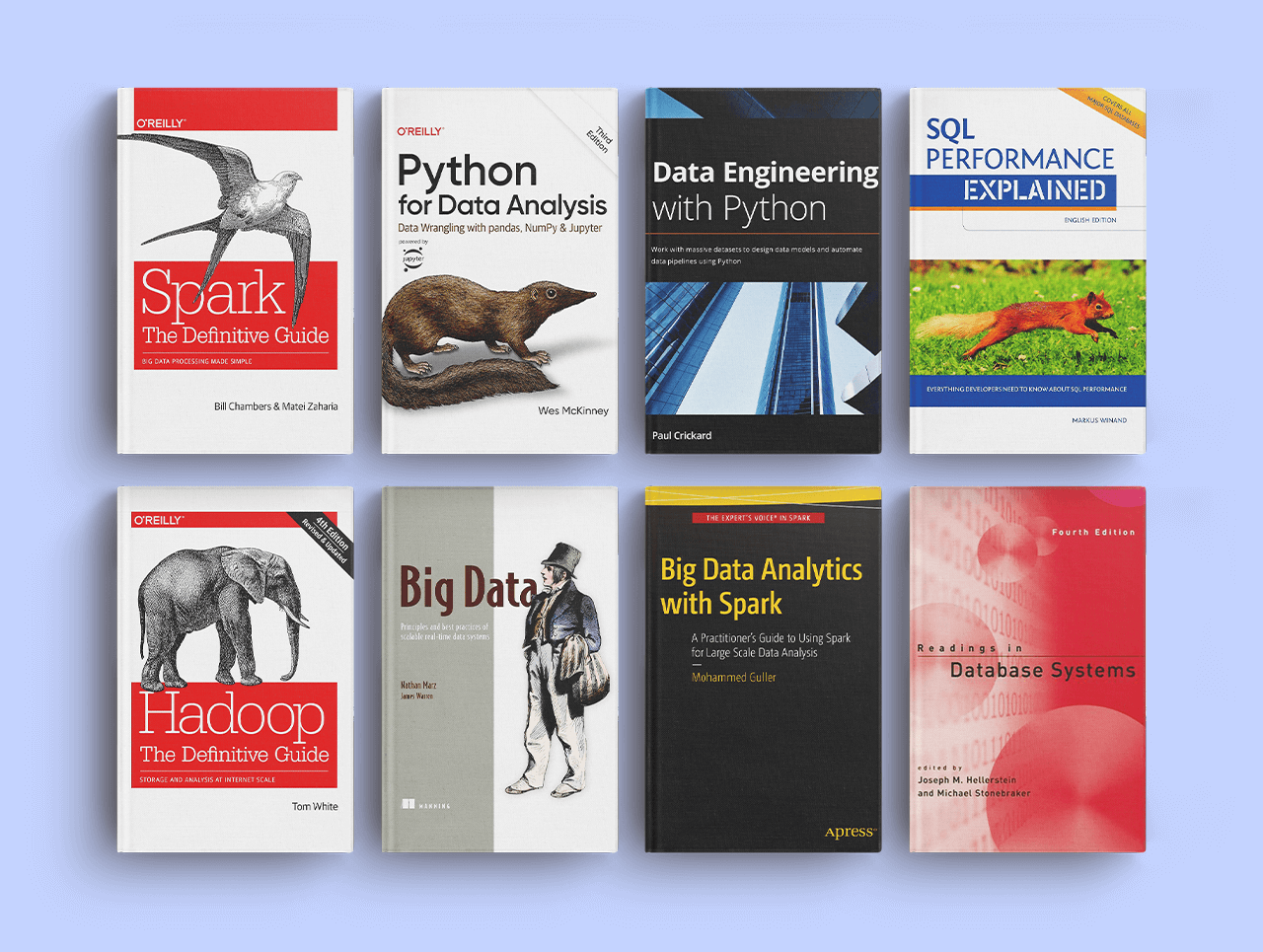Best Data Engineering Books You Must Read
The author of this article is tech expert Pieter Murphy.
Data engineering plays numerous vital roles in data science and analytics. Organizations rely on it to analyze and manage large data sets as it allows for data infrastructure maintenance, design, and creation.
In this way, data engineering has become crucial to any modern company’s technology stack. The demand for efficient and fast data processing has risen dramatically recently due to organizations' increasing reliance on data to improve product quality and make business decisions.
This means that data engineers and anyone looking to join the field must stay current with changes and understand all levels of the field. One effective way of doing just that is by reading data engineering books. If you’re interested in this career, here’s how to become a data engineer.
Introduction to Data Engineering Books
Today, if a company wishes to retain its edge in the marketplace, it must invest in thoroughly training its data engineers. Now, the question remains: what books should you read to deepen your data engineering knowledge?
In this article, we’ll look at the best books for data engineering, suitable for experts, beginners, and people interested in starting their careers as data engineers. We’ll arm you with resources and tips to help you launch your career and advance it.
Top 5 Must-Read Books for Data Engineers
No matter how varied the data engineering career path may be, one thing remains true – knowledge is power. To master the optimization of code, construct robust systems, understand AI’s impact, and secure container-based deployments, you will need extensive guidance from experts in these sectors.
Let’s delve into the following 5 books you must read as a data engineer. They will assist you in decoding the various complexities of container security, code efficiency, data generation, and AI’s implications on society.

1. A Common-Sense Guide to Data Structures and Algorithms, 2e: Level Up Your Core Programming Skills by Jay Wengrow
This book will show you how to significantly increase your code’s efficiency by unlocking the power of algorithms and data structures. You’ll learn ways of exponentially enhancing speed through Big O Notation.
The book explores trees, hash tables, and graphs for performance boosting. It uses diagrams and clear language to simplify complex concepts. It also includes new chapters on dynamic programming practice exercises and much more.
Use this book to gain practical skills for faster, scalable programming in Ruby, Python, and JavaScript. Test yourself and elevate your programming prowess by attempting the exercises in each chapter.
2. Container Security: Fundamental Technology Concepts That Protect Containerized Applications by Liz Rice
Organizations rely heavily on orchestration and containers for resilience and scalability in cloud-based environments. However, ensuring these deployments are secure can be very challenging.
This book is a practical guide that delves into container-based systems for an in-depth understanding of their underlying technologies. Operators, developers, and security professionals use the book to learn effective ways of assessing security risks and implementing solutions.
3. The Datapreneurs: The Promise Of AI and the Creators Building Our Future by Bob Muglia
This book offers a new perspective that goes beyond technicalities and shifts its focus from the technical intricacies to dictating the future direction concerning data technology and the evolution of AI.
The book will guide you through everything from data tech innovation to Artificial Intelligence, giving you a clear and unbiased view of AI’s future implications.
Through this book, you’ll acquire ethical considerations that align with Asimov’s Laws of Robotics and learn how humans can collaborate with intelligent machines to preserve the natural environment and advance global progress.
4. Designing Data-Intensive Applications by Martin Kleppmann
This book is a perfect reference resource for building scalable and robust data systems. It is a comprehensive manual exploring the design methods and principles applied to make data-heavy apps.
Designing Data-Intensive Applications discusses the challenges and complexities of making practical, dependable, and maintainable data systems while focusing on real-world scenarios and examples.
5. The Data Warehouse Toolkit by Ralph Kimball & Margy Ross
The Data Warehouse Toolkit book of data engineering is handy as it provides a complete overview of the techniques and concepts to construct and design data warehouses.
It covers the primary data warehousing techniques, principles, and best practices like Extract, Transform, Load (ETL) procedures, dimensional modelling, and data modelling. The book uses a step-by-step approach that will help you develop effective data warehouse solutions.
You can find additional excellent learning materials in Anywhere Club courses.
Best Data Engineering Books for Beginners
Are you starting your information engineering career? The best way to start your journey is with books about data engineering that will provide practical insights and comprehensive guidance on the basic techniques and concepts of information engineering.
Here are some excellent data engineering book choices that will help you build a dependable foundation:

Fundamentals of Data Engineering: Plan and Build Robust Data Systems by Joe Reis & Matt Housley
This book will act as an introduction and a practical guide through the rapidly evolving world of information engineering. It explores the entire data engineering lifecycle and unveils proven strategies you can employ to construct systems specific to your organization and consumer demands.
The book will show you how to meet different data consumer needs by integrating and evaluating the best technologies in various frameworks.
Fundamentals of Data Engineering will help you as a data scientist understand the fundamentals of data orchestration, generation, transformation, ingestion, governance, and storage, which are crucial to any data environment.
You will learn how to leverage cloud technologies to streamline downstream data delivery effectively.
Specialized Books for Data Engineering
The following are some of the best books to learn about data engineering categorized into their various specializations.

Database Engineering Books
As a database engineer, your primary role will be creating and managing the organization’s database. You’ll design strategies for data warehouse systems, enterprise databases, and multidimensional networks.
Give the following two data engineer books a read and learn practical ways of navigating the role of a database engineer:
Readings in Database Systems edited by Peter Bailis, Joseph M. Hellerstein, & Michael Stonebraker
This resource is a compilation of seminal papers in database systems, providing insights into the evolution of database technology. This book for data engineers covers a wide range of topics essential for database engineers, ranging from relational databases to NoSQL and NewSQL systems.
SQL Performance Explained: Everything Developers Need to Know about SQL Performance by Markus Winand
You’ll need to understand SQL performance to optimize database queries and improve application performance. SQL Performance Explained offers practical advice and techniques for writing efficient SQL queries, making it indispensable for database engineers.
Data Engineering Python Books
The following are data engineering best books that will help you work best with Python as a data engineer:
Data Engineering with Python by Paul Crickard
Python is a very popular programming language. This book focuses on Python and data engineering. It covers the techniques and tools needed to handle large datasets.
It will provide you with ways of tackling challenges from essential topics to advanced concepts such as database integration and data handling and guide you through creating effective data pipelines.
When you end it, you will have gained expertise in data modelling and confidence in developing pipelines for quality checks, data tracking, and production changes.
Python for Data Analysis by Wes McKinney
Python is well-liked in information engineering due to its versatility and extensive libraries. You can use python for data analysis book as a comprehensive guide to data manipulation and analysis in Python, covering essential libraries such as NumPy, Pandas, and Matplotlib.
Big Data Engineering Books
As a big data engineer, you’ll often be required to manage the transformation and ingestion of high volumes of data sets from different company sources.
You’ll be tasked with designing and building pipelines that transport and transform data for end users like data scientists and business analysts. Here are the top books to learn data engineering that will help you streamline this part of your job:
Spark: The Definitive Guide: Big Data Processing Made Simple by Bill Chambers & Matei Zaharia
This book is a must-read if you want to start with Apache Spark. Apache Spark is a powerful platform for large data processing. Some of the topics covered in the book include processing of data, ingestion of data, graph processing, and machine learning.
The book utilizes thorough explanations and valuable illustrations to help you fully comprehend how to use Spark for big data processing and analytics applications.
Big Data: Principles and Best Practices of Scalable Real Time Data Systems by Nathan Marz & James Warren
This book is an excellent resource to learn the basics of working with big data. It covers comprehensively the best practices and principles of big data.
The book focuses on developing real-time and scalable data systems; it discusses data processing, modeling, and distributed systems. It dives into well-known technologies like Apache Storm, Apache Kafka, and Apache Hadoop.
You’ll get applicable advice on executing and developing effective data pipelines from the book.
Hadoop: The Definitive Guide by Tom White
Hadoop is synonymous with big data, and this is the best book to read for data engineers as it’s regarded as the authoritative guide to Hadoop and its ecosystem. It is an essential read for big data engineers as it covers everything from the basics to complex topics such as MapReduce, HDFS, and YARN.
Big Data Analytics with Spark by Mohammed Guler
This book builds on the foundations of Apache Spark and delves into advanced analytics methods for analyzing and processing data. This book discusses various use cases and methodologies for deriving insights from large datasets, from machine learning algorithms to graph processing.
Are you interested in improving your Data Engineering skills? Then look no further; take this opportunity to participate in our Career Bootcamp from Anywhere Club where you’ll gain invaluable skills and knowledge.
The Anywhere Club Career Bootcamp is an educational online program. It is ideal for you whether you’re a tester, developer, business analyst, designer, or someone interested in requalifying for a junior role in the shortest time possible. Partaking in the Bootcamp will give you a competitive advantage in the job market as it will:
Help you compose a compelling resume;
Afford you the rare opportunity to go through training stages with a real recruiter and
Teach you life hacks you can apply when job searching that will increase your chances of getting hired.
More information about the program:
- Payment plan: Free and paid — $45;
- Duration: 15 hours+
- Language of instruction: English
Learn Data Engineering with the Right Book
In conclusion, data engineering is a multifaceted discipline that will require you to have a diverse set of skills and knowledge. Part of that is choosing the right books to include in your curriculum.
Investing in the right data engineering books and materials listed here lets you stay abreast of the latest developments and best practices in the field, whether you’re a beginner or an experienced data engineer.
Augment the knowledge you will pick up from these books by keeping an eye on the industry, how it changes, what the best practices are, and so much more to stay relevant. In addition, if you are self-taught, continuously update your reading lists with the latest editions and add any other useful resources to create a more comprehensive library that you can use for years to come.
Make use of all the resources at your disposal to support your learning journey.
All the best!

.png)
